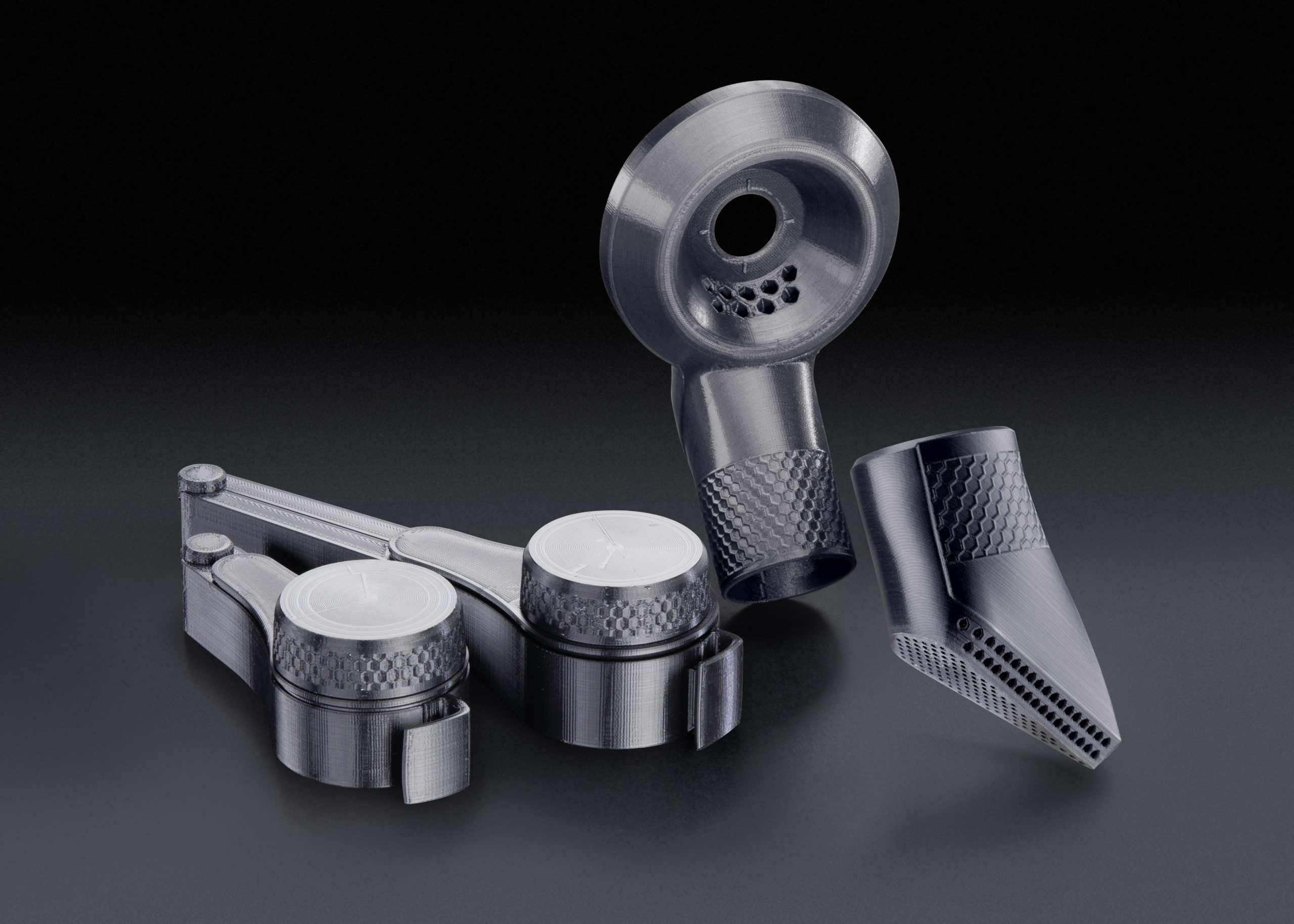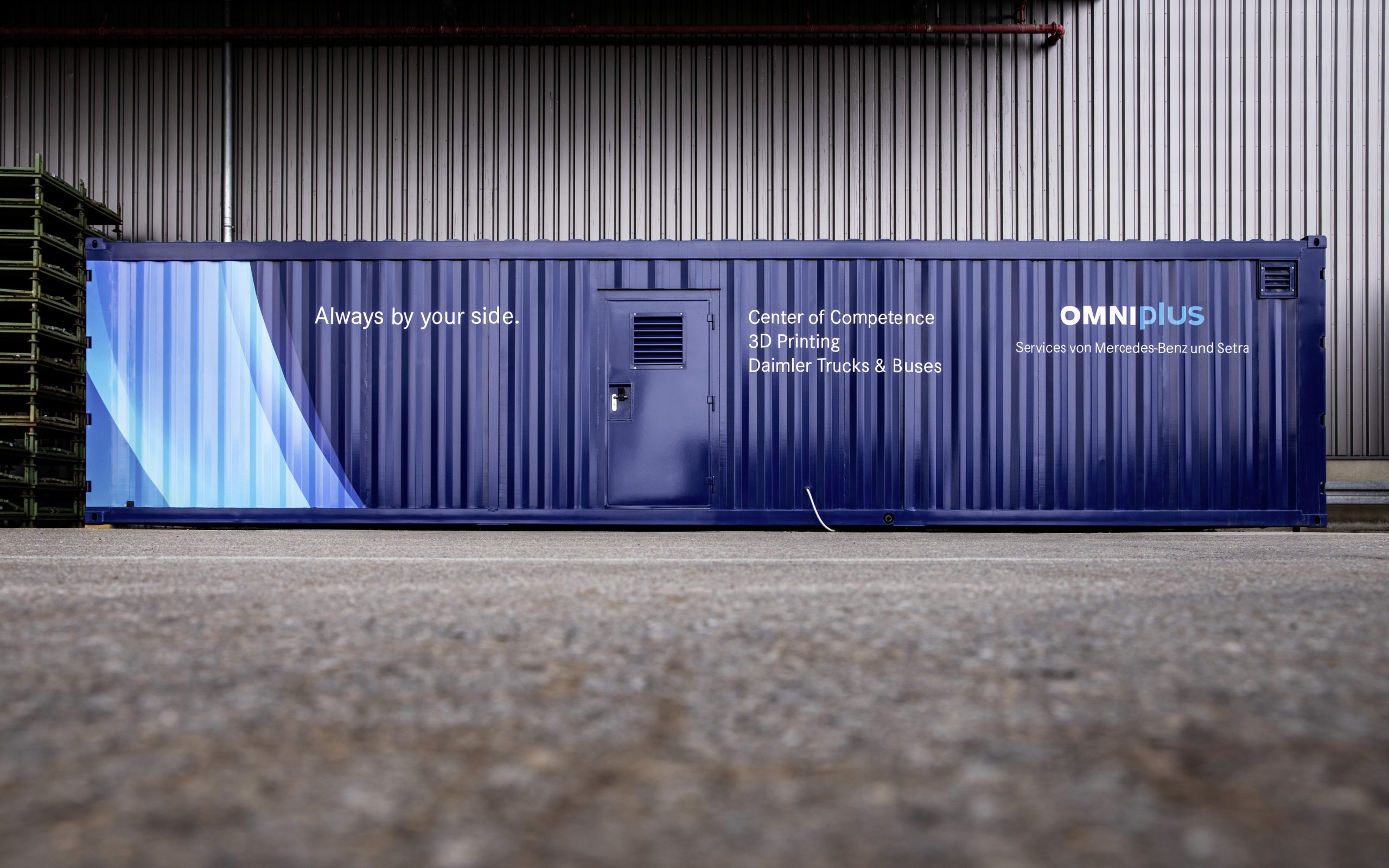Replique, a venture born out of chemical company BASF’s business incubator Chemovator, has partnered with German home appliance manufacturer Miele to produce and ship 3D printed accessories via its decentralized production network.
Through the partnership, Replique’s 3D printing platform will be integrated into Miele’s online shop to enable the company to provide its customers with new 3D printed accessories and spare parts both quickly and cost-effectively.
The partners are supposedly the first to implement a Good Manufacturing Practice (GMP) for the 3D printing of polymer parts for food contact applications, beginning with an initial three accessories – a coffee clip, borehole cleaner, and a valuable separator for vacuum cleaner attachments.
“So far, competing companies have only offered fragmented solutions,” said David Buhl, Manager Innovation Management Miele Room Care. “Replique is the only partner who has in-depth knowledge of the entire process and the right network to offer a turnkey solution.
“Their business model is scalable and we expect to expand our business in Germany, Europe or even worldwide in a short period of time.”

3D printing spare parts and accessories
The partnership announcement between Replique and Miele is a timely one, in light of new EU legislation giving consumers the ‘Right to Repair’ on the goods they buy which is set to come into effect later this summer. Under the new laws, companies that sell consumer electronic goods in the EU will be obliged to ensure they can be repaired for up to a decade in order to avoid issues of planned obsolescence and high levels of electrical waste.
According to some in the additive manufacturing industry, 3D printed spare parts could help consumer appliance manufacturers adhere to the legislation, while avoiding large physical stocks of replacement parts and subsequent incurring costs. On-demand 3D printed parts and their digital inventories could also help to bolster supply chain resiliency in the future, while distributed digital manufacturing networks could play a key role in future crises, as seen with the Covid-19 pandemic.
The adoption of 3D printed spare parts has already begun in a number of other industries. For instance, multinational automotive corporation Daimler AG has created a mobile 3D printing center for the decentralized production of spare parts, and the Dutch Navy has recently invested in 3D printing technology to boost its on-demand spare part manufacturing capabilities.
Elsewhere, Sauber Engineering has announced plans to establish a 3D printing business for producing on-demand classic car spare parts, and the French national railway SNCF has integrated the Agile PLM additive manufacturing platform from 3D printing software developer 3YOURMIND for spare part production.

Miele’s 3D printing adoption
Miele is a leading manufacturer of premium domestic appliances ranging from cooking appliances and refrigerators to dishwashers and tumbledryers, among other products. In May last year, the company launched its 3D4U project aimed at providing customers with free designs of 3D printable accessories for its appliances.
Due to increasing demand for the service, the firm decided to scale up the project to provide such 3D printed products to customers who do not have their own 3D printers. As such, Miele has now partnered with Replique, a venture born out of BASF’s internal Chemovator incubator and conceived by employees in BASF’s Data2Value team within its digitization group.
Replique offers an industrial 3D printing platform that enables OEMs to provide 3D printed parts on-demand to their customers via its global decentralized 3D printing network. By integrating the Replique platform into its online shop, the idea is that Miele will no longer need to store large quantities of spare parts in a warehouse, but can instead store the design of these parts in a digital inventory and produce them on-demand using additive manufacturing.
Replique’s platform will provide 3D printing processes, material knowledge and quality assurance to Miele, and will offer digitally supported order fulfilment and simple integration into the company’s existing ERP and e-commerce processes.
The partnership will start with three accessories on Miele’s online shop, a coffee clip, borehole cleaner, and a valuable separator for vacuum attachments. Replique will be able to qualify the printing processes in accordance with the required specifications for each application. The coffee clip is also in the process of being certified for food contact through providing a manufacturing process in accordance with the GMP.
“Certifying processes in 3D printing is a complex topic that has yet to be really considered in the field of food approval,” said Dr. Max Siebert, Co-founder of Replique. “Working together with our partner Forward AM we are the first 3D printing solutions provider to implement a 3D printing process according to GMP and can therefore guarantee high process reliability.”
In addition to the three initial 3D printed accessories, the companies are planning to expand the product range available on the platform later this year.
Subscribe to the 3D Printing Industry newsletter for the latest news in additive manufacturing. You can also stay connected by following us on Twitter and liking us on Facebook.
Looking for a career in additive manufacturing? Visit 3D Printing Jobs for a selection of roles in the industry.
Subscribe to our YouTube channel for the latest 3D printing video shorts, reviews and webinar replays.
Featured image shows 3D printed coffee clip in two sizes, valuable separator, and borehole cleaner Material: Polyethylene terephthalate, Glycol modified (PETG). Photo via Replique.



